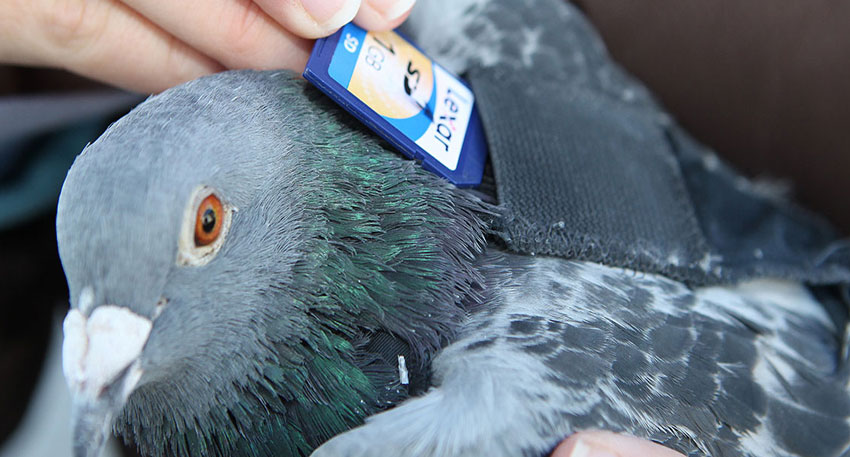
At the end of November 2025, Russian neurotechnology firm Neiry has announced the development of “bio-drones”, the ordinary pigeons whose brains have been implanted with neutral chips that allow operators to steer their flight paths remotely.
Using stereotactic surgery, tiny electrodes are precisely inserted into targeted regions of the birds’ brains.
These are connected with a miniature backpack-type device carrying a stimulator, GPS and solar-powered electronics that together enable remote operators to influence the birds’ instincts effectively making them believe they want to fly in a chosen direction.
According to Neiry, the first flock of pigeons has already completed lab to wild test flights and returned reliably.
Some of the birds remain in Moscow for further trials, while others are slated for long-distance operations potentially covering miles at a time.
The company says the technology is aimed at infrastructure monitoring, for instance, inspecting power lines, gas distribution hubs or other critical facilities and argues no training is required, unlike with conventional drone pilots.
Yet the announcement has sparked alarm among experts around the world. Critics warn that such bio-drones could easily be repurposed for espionage, covert surveillance or even military operations, blurring ethical, legal and security boundaries.
Read Also: Google offers one-year free Gemini AI Pro subscription for students
As the first brain-chipped bird drone takes flight, the world is now watching closely questioning whether this merges the line between living beings and machines and what it means for privacy and warfare in the years to come.




